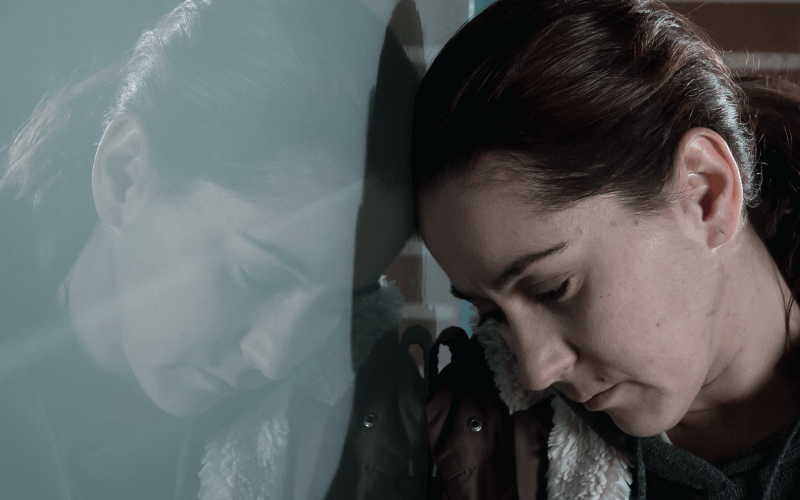Domestic abuse is a crime largely hidden which affects the quality of life of those suffering abuse their family and friends and can also have an impact on their home.
This page explains how you can get help and support if you are experiencing or perpetrating domestic abuse.
What is domestic abuse?
-
What can Broadacres do for people experiencing domestic abuse?
-
We are committed to acting quickly, effectively and sympathetically to anyone who is experiencing domestic abuse.
We will:
- Keep to all of our responsibilities to you as a customer
- Offer you support and advice from our Champions
- Give you emotional support and practical help and advice
- Be sensitive and understanding when we discuss your housing options;
- Work with government, voluntary and other organisations to give you support when you need it
- React quickly and effectively to make sure you are safe
- Pursue relevant action against those who are responsible for domestic abuse using the conditions of our Tenancy Agreements, if you agree
Our champions can give you emotional support and practical help and advice with your tenancy and other issues.
For more information give our main office a call on: 01609 767900 or pop in. You can also make an homeless application and get more advice from Hambleton District Council on: 01609 779977
-
What can Broadacres do for perpetrators of domestic abuse?
-
Our staff may be able to offer support to the perpetrator (the person responsible).
If you are using abusive behaviour against a partner and are looking to change your behaviour you can speak to one of our Champions.
-
What if I want to stay in my home?
-
If you are experiencing domestic abuse and you want to stay in your current home, our Housing Officers can give you support and advice on what you need to do. We can also talk to you about keeping you safe in your home.
-
What if I cannot return to my home?
-
If you need to be rehoused away from the person who is abusing you, we can give you housing advice or discuss alternative safe accommodation or we can seek to find a Women’s Refuge place for you. If you cannot get into your home or you are afraid to stay there, we can help you. You can contact our main office (01609 767900) and our staff will be able to listen to you and give you advice and support. The Police may be able to go with you if you want to get personal belongings from your home.
-
If I ask for a Champion to call out to my home, what are the risks?
-
Our champions do not wear uniforms or badges so your neighbours would not be aware they were from Broadacres. However, they will provide an identification badge on request.
-
Will my partner (or person causing domestic abuse) know that I have asked for help?
-
We will never inform the person responsible that we have spoken to you. As your safety is our main concern we will also not take any action against this person without consulting you first.
-
Who else can I talk to and what services do they provide?
-
There are many organisations who can provide support to people experiencing or perpetrating domestic abuse. Listed below are useful phone numbers of organisations who can help you or help someone you know.
IDAS – Independent Domestic Abuse Services
Provides domestic abuse outreach services in Hambleton and Richmondshire including practical and emotional support
- Helpline 03000 110 110 (24 Hours)
- Office hours 01609 779769
- Rape Support Line 0300 111 07777
- www.idas.org.uk
Foundation making safe scheme
- York 01904 526240
- Selby 01757 210415
- Harrogate 01423 500905
- Craven 01756 701110
- Scarborough 01723 361100
- Hambleton 01609 767008
- Richmondshire 01748 850756
- Ryedale 01653 691400
Mankind (Male victims of Domestic Abuse)
- 01823 334244
- http://www.mankind.org.uk/
Galop (LGBT)
- 0800 999 5428
- http://www.galop.org.uk/domesticabuse/
RESPECT (Perpetrators)
- 0808 802 4040 or email: info@respectphoneline.org.uk
- http://respectphoneline.org.uk/
Women’s Aid
- 0808 2000 247
- https://www.womensaid.org.uk/
Safer Places – Domestic abuse support (male and female)
- 0845 017 7668
- www.saferplaces.co.uk
Asylum Aid (asylum seekers and refugees)
- 0207 354 9631
Centre for Action on Rape and Abuse (CARA)
- 01206 769 795
- www.caraessex.org.uk
Samaritans
- 08457 909 090
- www.samaritains.org.uk
In an emergency always call the Police on 999 or 101 at any other time.
-
Supporting domestic abuse perpetrators to change their behaviour
-
Broadacres does not tolerate domestic abuse and we are committed to supporting anyone experiencing domestic abuse.
We hold those who perpetrate domestic abuse accountable by enforcement and we will look to provide support to those who wish to address their behaviour. The Making safe program run by Foundation has been launched to support perpetrators of domestic abuse.Broadacres work in partnership with IDAS and Foundation to support perpetrators of domestic abuse who are committed to addressing their behaviour. The primary aim to work with perpetrators to address their behaviours which have led to domestic abuse. The scheme aims to reduce risks to those involved in domestic incidents and reduce the opportunity for a repeat incident to occur.
-
Are you a victim of Domestic Abuse?
-
Domestic violence and abuse can happen to anyone, yet the problem is often overlooked, excused, or denied. This is especially true when the abuse is psychological, rather than physical.
Noticing and acknowledging the signs of an abusive relationship is the first step to ending it. If you recognise yourself or someone you know in the following descriptions of abuse, reach out now. There is help available. No one should live in fear of the person they love.
Do you:
- feel afraid of your partner much of the time?
- avoid certain topics out of fear of angering your partner?
- feel that you can’t do anything right for your partner?
- believe that you deserve to be hurt or mistreated?
- wonder if you’re the one who is crazy?
- feel emotionally numb or helpless?
Does your partner:
- humiliate or yell at you?
- criticise you and put you down?
- treat you so badly that you’re embarrassed for your friends or family to see?
- ignore or put down your opinions or accomplishments?
- blame you for their own abusive behaviour?
- see you as property or a sex object, rather than as a person?
- have a bad and unpredictable temper?
- hurt you, or threaten to hurt or kill you?
- threaten to take your children away or harm them?
- threaten to commit suicide if you leave?
- force you to have sex?
- destroy your belongings?
- act excessively jealous and possessive?
- control where you go or what you do?
- keep you from seeing your friends or family?
- limit your access to money, the phone, or the car?
- constantly check up on you?
If you answered yes to any of the questions, you may be in an abusive relationship.
Please contact one of the organisations listed on this page for more help.
Worried about someone seeing what you've been looking at on-line

Worried about someone seeing what you’ve been looking at on-line
If you want to be completely sure of not being tracked online use a computer at a local library, an internet cafe, a friend’s house or at work.
You can also delete your browser history which will remove the history of the pages you’ve visited, but please remember that clearing your history only minimises the chances of someone knowing what websites you have visited and there are other way of finding this out if you know how to do it.
Click on the links below for whichever browser you use for instructions on how to do it.


